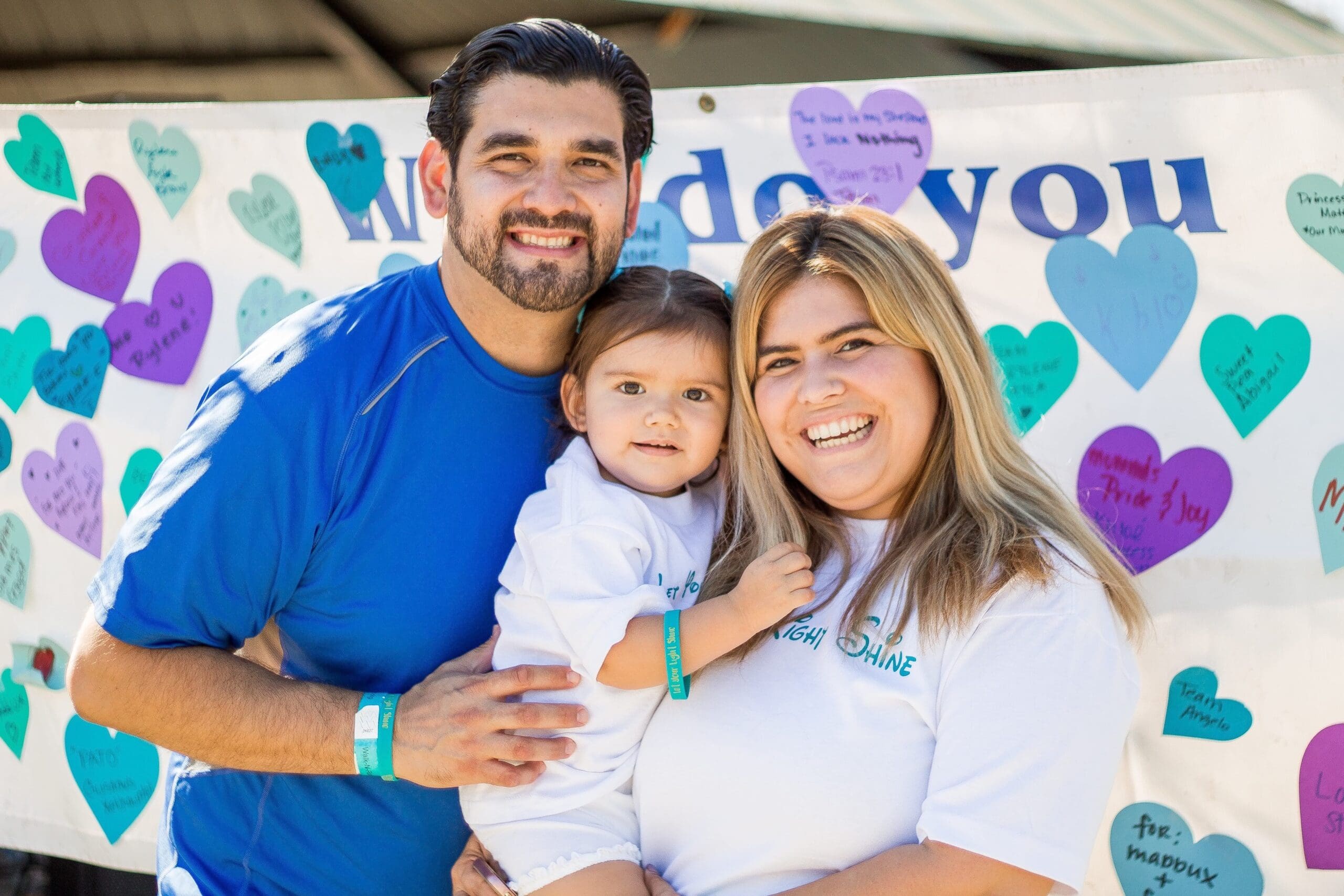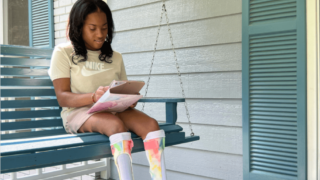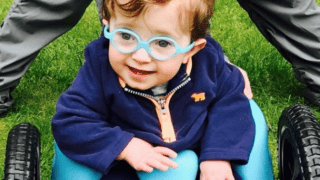If you have just been told your baby has Spina Bifida OR if you’ve recently learned your baby has Spina Bifida, the first thing we want you to know is that you are not alone.
If you are feeling frustrated, overwhelmed, confused, conflicted – these feelings are normal, and you’re allowed to experience all of these without judgment. There is a strong and growing network of people with Spina Bifida, other parents and families, health professionals, and Spina Bifida clinics that can provide you with information and resources for wherever you are on your journey.
SBA offers two guides to help new and expecting parents better understand Spina Bifida.
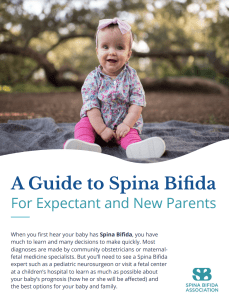
To download A Guide to Spina Bifida For Expectant and New Parents, click here.
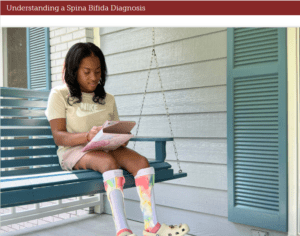
To view the online booklet, Understanding a Spina Bifida Diagnosis, click here.
Diagnosis
We know receiving a Spina Bifida diagnosis can be confusing and scary when you don’t have much information. Many others have been through this experience and can help you during this time. The Spina Bifida Association can connect you with experienced parents who have been trained to support you with information, resources, and encouragement as you make decisions and navigate next steps. There are different ways to connect with a mentor:
- Complete this form to Connect with a Peer Mentor who will reach out to you.
- Contact the Spina Bifida Resource Center – ¡HABLAMOS ESPAÑOL!
- [email protected]
- 1-800-621-3141, x. 800
The following is an overview of what Spina Bifida is, what we know about its causes, and suggested steps during the first days and weeks after a Spina Bifida diagnosis
What is Spina Bifida?
Spina Bifida, a type of neural tube defect (often seen as NTD), is a complex birth defect that is hard to describe. Spina Bifida is often referred to as the snowflake condition of birth defects because no two people with it are affected in the same way.
Many medical professionals will describe Spina Bifida as a spinal cord injury present at birth. However, the severity of Spina Bifida can vary greatly depending on factors such as the level of the lesion along the spinal cord. It’s important that you speak with a health care professional who is very familiar with Spina Bifida so you can learn more about how your baby will be affected. If you’ve had a hard time finding a health care provider in your area who can speak with you about your pregnancy and Spina Bifida, we can help. You can review our working list of Spina Bifida clinics or call our National Resource Center where our staff can help put you in touch with a specialty health care professional in your area that can work with you.
What will my baby be like?
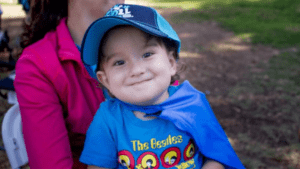
The short answer to this question is, we don’t know. Nobody does. We can’t emphasize this enough – the best thing you can do to have any insight into this question is to speak and meet with a medical professional who currently specializes and actively treats people living with Spina Bifida. This professional can talk to you about what they predict, expect, what life could be like, but even then – nobody can know for sure. There are many community resource groups that can help you learn more about how diverse Spina Bifida can look like, but also show you how many common threads the parents, children, and adults have in our community.
What causes Spina Bifida?
First off, Spina Bifida diagnosis is not the parent’s fault. Every woman of childbearing age is at risk of having a pregnancy affected by a birth defect. Birth defects can’t be prevented; the risk can only be reduced. While there is no single known cause for Spina Bifida, scientists and doctors believe that it occurs from a complex mix of genetic and environmental factors present very early in the pregnancy (by the fourth week). It’s important to know that neural tube defects like Spina Bifida are not entirely understood, and Spina Bifida is not caused by a parent’s actions.
Ensure you are meeting with the appropriate medical professionals when you learn about Spina Bifida. Nothing is worse than googling your information.”

What to do next
- This is easier said than done, but feverishly searching for “Spina Bifida” can often bring up information and photos that are out-of-date, extreme, and often inaccurate. Although many organizations offer valuable resources, the best thing to do is speak to an expert who can speak specifically to you about your pregnancy or baby.
- You’ve already heard this, but we can’t emphasize this enough – Do make sure that the information you gather is from a trusted, experienced source, and that you follow the advice of health and medical professionals who are knowledgeable about Spina Bifida. Search our list of clinics and providers, and you can contact our National Resource Center for any information or direction, including how to connect with parents and caregivers who have been in your shoes.
- Don’t exhaust yourself trying to determine exactly what the future holds. A diagnosis of Spina Bifida and a new baby with Spina Bifida is a lot to take in. While you can’t help but wonder what having a future with a child living Spina Bifida will be like, it’s important to take one step at a time.
- Do speak with other parents and caregivers who have experienced what you are going through. Contact our National Resource Center to be put in touch with parents and caregivers who have unbiasedly been able to support other parents in your shoes. Or consider some of these groups from our online community (please note, not all of these groups are owned by SBA, and the views and opinions expressed in these groups does not always reflect those of the Spina Bifida Association) which we believe could be resourceful to you at this time:
How we can help
We are here for you! Don't hesitate to reach out to let us know how we can better serve you.
We provide a variety of resources to help you learn about Spina Bifida so that you can prepare for your baby’s arrival.
Reading for Expectant Parents
Connect online with other expectant parents, parents, and friends
We have a number of Facebook groups that might be of benefit to you.
Connect